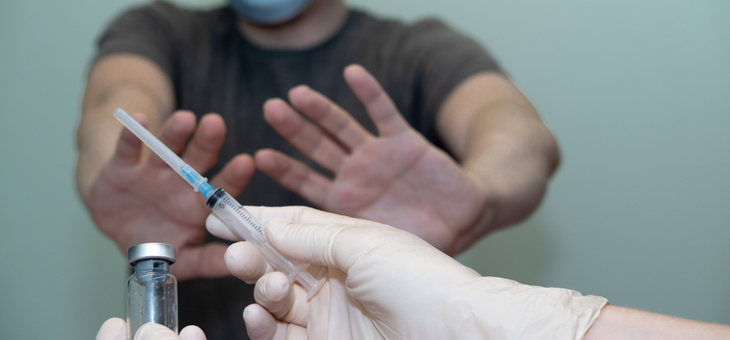Anyone who has ever developed a urinary tract infection (UTI) knows that it can be painful, pesky and persistent, but there is hope that they may soon be a thing of the past.
UTIs are one of the most common infections in older adults, with more than 10 per cent of women older than 65 years reporting one in the past 12 months.
Older adults have a higher incidence of UTIs and symptoms can also be more severe. They also primarily affect women, with as many as 50 per cent of women experiencing at least one UTI in their lifetime.
Read more: How to find and exercise your pelvic floor muscles
Scientists from Duke Health in the US believe that they may be on the verge of developing a vaccine that could prevent UTIs forever.
In the paper, the researchers describe a new vaccination strategy that they think could re-program the body to fight off the bacteria that cause urinary tract infections.
“Although several vaccines against UTIs have been investigated in clinical trials, they have so far had limited success,” said Dr Soman Abraham, senior author on the paper.
Read more: A urologist’s guide to healthy pee
There are currently no effective UTI vaccines in spite of the high prevalence of bladder infections.
“Our study describes the potential for a highly effective bladder vaccine that can not only eradicate residual bladder bacteria, but also prevent future infections,” Dr Abraham said.
The strategy, which the team showed to be effective in mouse models, involves re-programming an inadequate immune response that the team identified last year.
Read more: The positive impact of drinking enough water
The researchers observed that when mouse bladders get infected with E. coli bacteria, the immune system dispatches repair cells to heal the damaged tissue, while launching very few warrior cells to fight off the attacker. This causes bacteria to never fully clear, living on in the bladder to attack again.
According to the paper’s lead author, Dr Jianxuan Wu: “The new vaccine strategy attempts to ‘teach’ the bladder to more effectively fight off the attacking bacteria.”
The vaccine is administered directly into the bladder where any residual bacteria may be harboured by the patient.
The researchers reported that bladder-immunized mice effectively fought off infecting E. coli and eliminated all residual bladder bacteria, suggesting the site of administration could be an important consideration in determining the effectiveness of a vaccine.
“We are encouraged by these findings, and since the individual components of the vaccine have previously been shown to be safe for human use, undertaking clinical studies to validate these findings could be done relatively quickly,” Dr Abraham said.
If you are unsure whether you have a UTI, symptoms can include:
- burning on urination
- going to the toilet more frequently
- urgency / the feeling of needing to urinate
- fever
- chills
- lower abdominal/pelvic pain
- back pain
- cloudy and/or smelly urine
- urinary incontinence/ leakage of urine
- blood in the urine
- fatigue
- nausea.
Older adults may also experience changes in behaviour such as confusion and agitation if they are suffering from a UTI.
Older adults are thought to be more at risk from UTIs because they may have:
- weaker immune systems
- associated medical conditions that causes you to retain urine more such as Alzheimer’s Disease, Parkinson’s disease, diabetes, prolapsed bladder or an enlarged prostate
- incontinence of the bladder or bowel
- the presence of a urinary catheter
- a history of recurrent UTIs.
- lower levels of estrogen (in post-menopausal women).
Have you had a UTI? Would you sign up for a UTI vaccine as soon as one became available?
If you enjoy our content, don’t keep it to yourself. Share our free eNews with your friends and encourage them to sign up.

